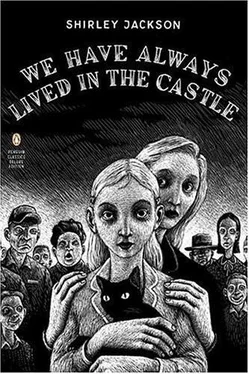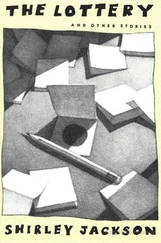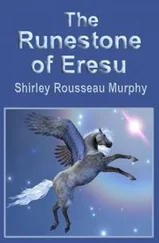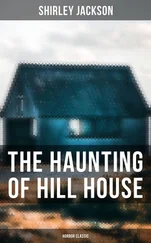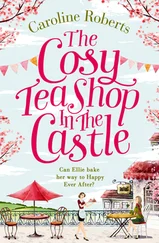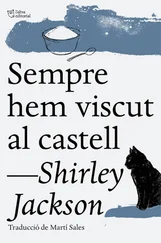Shirley Jackson - We Have Always Lived in the Castle
Здесь есть возможность читать онлайн «Shirley Jackson - We Have Always Lived in the Castle» весь текст электронной книги совершенно бесплатно (целиком полную версию без сокращений). В некоторых случаях можно слушать аудио, скачать через торрент в формате fb2 и присутствует краткое содержание. Город: New York, Год выпуска: 2006, ISBN: 2006, Издательство: Penguin Books, Жанр: Триллер, gothic_novel, на английском языке. Описание произведения, (предисловие) а так же отзывы посетителей доступны на портале библиотеки ЛибКат.
- Название:We Have Always Lived in the Castle
- Автор:
- Издательство:Penguin Books
- Жанр:
- Год:2006
- Город:New York
- ISBN:978-1-101-53065-8
- Рейтинг книги:3 / 5. Голосов: 1
-
Избранное:Добавить в избранное
- Отзывы:
-
Ваша оценка:
- 60
- 1
- 2
- 3
- 4
- 5
We Have Always Lived in the Castle: краткое содержание, описание и аннотация
Предлагаем к чтению аннотацию, описание, краткое содержание или предисловие (зависит от того, что написал сам автор книги «We Have Always Lived in the Castle»). Если вы не нашли необходимую информацию о книге — напишите в комментариях, мы постараемся отыскать её.
is a deliciously unsettling novel about a perverse, isolated, and possibly murderous family and the struggle that ensues when a cousin arrives at their estate.
We Have Always Lived in the Castle — читать онлайн бесплатно полную книгу (весь текст) целиком
Ниже представлен текст книги, разбитый по страницам. Система сохранения места последней прочитанной страницы, позволяет с удобством читать онлайн бесплатно книгу «We Have Always Lived in the Castle», без необходимости каждый раз заново искать на чём Вы остановились. Поставьте закладку, и сможете в любой момент перейти на страницу, на которой закончили чтение.
Интервал:
Закладка:
“Good morning, Mary Katherine,” Stella always said, reaching over to wipe the counter with a damp rag, “how are you today?”
“Very well, thank you.”
“And Constance Blackwood, is she well?”
“Very well, thank you.”
“And how is he ?”
“As well as can be expected. Black coffee, please.”
If anyone else came in and sat down at the counter I would leave my coffee without seeming hurried, and leave, nodding goodbye to Stella. “Keep well,” she always said automatically as I went out.
I chose the library books with care. There were books in our house, of course; our father’s study had books covering two walls, but I liked fairy tales and books of history, and Constance liked books about food. Although Uncle Julian never took up a book, he liked to see Constance reading in the evenings while he worked at his papers, and sometimes he turned his head to look at her and nod.
“What are you reading, my dear? A pretty sight, a lady with a book.”
“I’m reading something called The Art of Cooking, Uncle Julian.”
“Admirable.”
We never sat quietly for long, of course, with Uncle Julian in the room, but I do not recall that Constance and I have ever opened the library books which are still on our kitchen shelf. It was a fine April morning when I came out of the library; the sun was shining and the false glorious promises of spring were everywhere, showing oddly through the village grime. I remember that I stood on the library steps holding my books and looking for a minute at the soft hinted green in the branches against the sky and wishing, as I always did, that I could walk home across the sky instead of through the village. From the library steps I could cross the street directly and walk on the other side along to the grocery, but that meant that I must pass the general store and the men sitting in front. In this village the men stayed young and did the gossiping and the women aged with grey evil weariness and stood silently waiting for the men to get up and come home. I could leave the library and walk up the street on this side until I was opposite the grocery and then cross; that was preferable, although it took me past the post office and the Rochester house with the piles of rusted tin and the broken automobiles and the empty gas tins and the old mattresses and plumbing fixtures and wash tubs that the Harler family brought home and—I genuinely believe—loved.
The Rochester house was the loveliest in town and had once had a walnut-panelled library and a second-floor ballroom and a profusion of roses along the veranda; our mother had been born there and by rights it should have belonged to Constance. I decided as I always did that it would be safer to go past the post office and the Rochester house, although I disliked seeing the house where our mother was born. This side of the street was generally deserted in the morning, since it was shady, and after I went into the grocery I would in any case have to pass the general store to get home, and passing it going and coming was more than I could bear.
Outside the village, on Hill Road and River Road and Old Mountain, people like the Clarkes and the Carringtons had built new lovely homes. They had to come through the village to get to Hill Road and River Road because the main street of the village was also the main highway across the state, but the Clarke children and the Carrington boys went to private schools and the food in the Hill Road kitchens came from the towns and the city; mail was taken from the village post office by car along the River Road and up to Old Mountain, but the Mountain people mailed their letters in the towns and the River Road people had their hair cut in the city.
I was always puzzled that the people of the village, living in their dirty little houses on the main highway or out on Creek Road, smiled and nodded and waved when the Clarkes and the Carringtons drove by; if Helen Clarke came into Elbert’s Grocery to pick up a can of tomato sauce or a pound of coffee her cook had forgotten everyone told her “Good morning,” and said the weather was better today. The Clarkes’ house is newer but no finer than the Blackwood house. Our father brought home the first piano ever seen in the village. The Carringtons own the paper mill but the Blackwoods own all the land between the highway and the river. The Shepherds of Old Mountain gave the village its town hall, which is white and peaked and set in a green lawn with a cannon in front. There was some talk once of putting in zoning laws in the village and tearing down the shacks on Creek Road and building up the whole village to match the town hall, but no one ever lifted a finger; maybe they thought the Blackwoods might take to attending town meetings if they did. The villagers get their hunting and fishing licenses in the town hall, and once a year the Clarkes and the Carringtons and the Shepherds attend the town meeting and solemnly vote to get the Harler junk yard off Main Street and take away the benches in front of the general store, and each year the villagers gleefully outvote them. Past the town hall, bearing to the left, is Blackwood Road, which is the way home. Blackwood Road goes in a great circle around the Blackwood land and along every inch of Blackwood Road is a wire fence built by our father. Not far past the town hall is the big black rock which marks the entrance to the path where I unlock the gate and lock it behind me and go through the woods and am home.
The people of the village have always hated us.
I played a game when I did the shopping. I thought about the children’s games where the board is marked into little spaces and each player moves according to a throw of the dice; there were always dangers, like “lose one turn” and “go back four spaces” and “return to Start,” and little helps, like “advance three spaces” and “take an extra turn.” The library was my start and the black rock was my goal. I had to move down one side of Main Street, cross, and then move up the other side until I reached the black rock, when I would win. I began well, with a good safe turn along the empty side of Main Street, and perhaps this would turn out to be one of the very good days; it was like that sometimes, but not often on spring mornings. If it was a very good day I would later make an offering of jewelry out of gratitude.
I walked quickly when I started, taking a deep breath to go on with and not looking around; I had the library books and my shopping bag to carry and I watched my feet moving one after the other; two feet in our mother’s old brown shoes. I felt someone watching me from inside the post office—we did not accept mail, and we did not have a telephone; both had become unbearable six years before—but I could bear a quick stare from the office; that was old Miss Dutton, who never did her staring out in the open like other folks, but only looked out between blinds or from behind curtains. I never looked at the Rochester house. I could not bear to think of our mother being born there. I wondered sometimes if the Harler people knew that they lived in a house which should have belonged to Constance; there was always so much noise of crashing tinware in their yard that they could not hear me walking. Perhaps the Harlers thought that the unending noise drove away demons, or perhaps they were musical and found it agreeable; perhaps the Harlers lived inside the way they did outside, sitting in old bathtubs and eating their dinner off broken plates set on the skeleton of an old Ford car, rattling cans as they ate, and talking in bellows. A spray of dirt always lay across the sidewalk where the Harlers lived.
Crossing the street (lose one turn) came next, to get to the grocery directly opposite. I always hesitated, vulnerable and exposed, on the side of the road while the traffic went by. Most Main Street traffic was going through, cars and trucks passing through the village because the highway did, so the drivers hardly glanced at me; I could tell a local car by the quick ugly glance from the driver and I wondered, always, what would happen if I stepped down from the curb onto the road; would there be a quick, almost unintended swerve toward me? Just to scare me, perhaps, just to see me jump? And then the laughter, coming from all sides, from behind the blinds in the post office, from the men in front of the general store, from the women peering out of the grocery doorway, all of them watching and gloating, to see Mary Katherine Blackwood scurrying out of the way of a car. I sometimes lost two or even three turns because I waited so carefully for the road to clear in both directions before I crossed.
Читать дальшеИнтервал:
Закладка:
Похожие книги на «We Have Always Lived in the Castle»
Представляем Вашему вниманию похожие книги на «We Have Always Lived in the Castle» списком для выбора. Мы отобрали схожую по названию и смыслу литературу в надежде предоставить читателям больше вариантов отыскать новые, интересные, ещё непрочитанные произведения.
Обсуждение, отзывы о книге «We Have Always Lived in the Castle» и просто собственные мнения читателей. Оставьте ваши комментарии, напишите, что Вы думаете о произведении, его смысле или главных героях. Укажите что конкретно понравилось, а что нет, и почему Вы так считаете.
